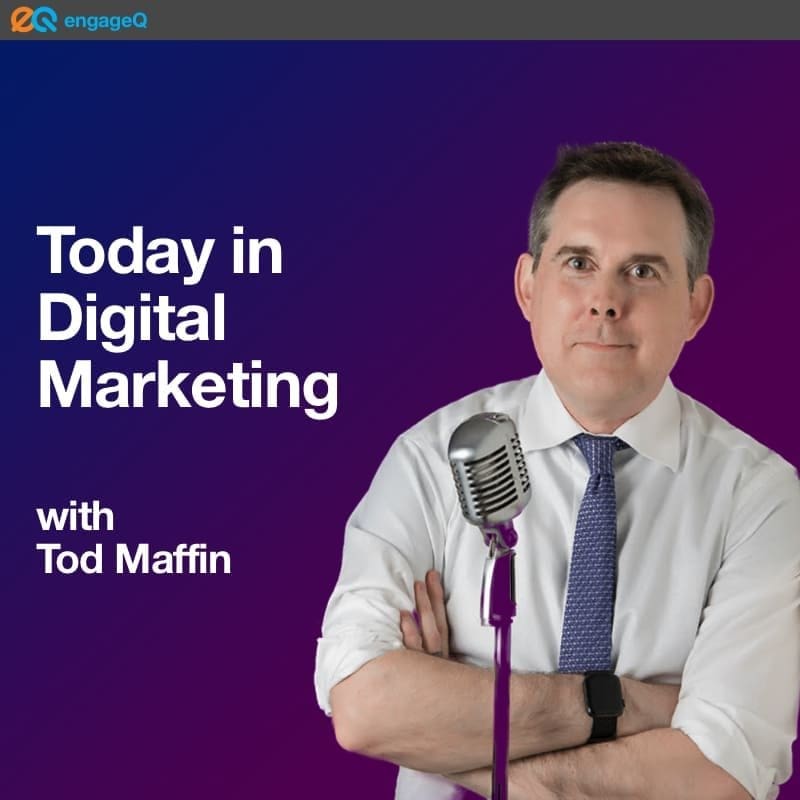by Tod Maffin (LinkedIn • social media)
Today's News
GOOGLE ADS • CPCs Up By 20%, On Average
INFLUENCER MARKETING • Authenticity Waning
GEN-Z • Where After TikTok? Not Instagram, Obvs.
Grow your audience faster with effortless content management
All in one platform to create, schedule, and analyze content on X and LinkedIn.
✅ Try for Free now.
META • Q1 Results
Last night, Meta released its Q1 results — we have full coverage on this today, starting with their ad business.
The Ad Business
That group said Q1 impressions were up about 20% year-over-year. Ad prices did increase, but only by about 6%.
Overall Revenues
Meta’s overall revenues were way up — 27% higher than Q1 of last year. The actual number is $35.6 billion, if you care about the raw data.
Data: Meta / Chart: AdWeek
That beat what investors were expecting by about a third of a billion dollars.
Meta said it expects even better numbers for Q2, but the numbers it teased were below where investors had hoped.
Investors Spooked by AI
But even with that fairly good news, Meta’s stock took a big dip in after-hours trading.
It seems most of it because investors were concerned that CEO Mark Zuckerberg has once again gotten enamored of a technology and is throwing the weight of the company’s focus behind it.
A few years ago, that tech was the so-called metaverse — hell, Zuckerberg renamed the entire company after it. Now, of course, the shiny new thing is AI, and Meta is falling in line to jam the tech in as many nooks and crannies as possible.
Consumer reaction has been lukewarm (to be generous), and investor reaction even worse. Meta’s stock fell 15% before the market opened this morning. At our deadline, the stock had not recovered those losses.
So what about AI, specifically, spooked investors?
For one thing, Meta admitted it’s expecting to spend $5 billion more than what it first estimated, almost all of that going to AI investments. On an earnings call, Zuckerberg tried to calm investors by pointing out that there were several ways AI could make money for the company — but that money isn’t guaranteed, the business plans are still being developed, and whatever revenue bump does come will come years from now.
We will have more detailed analysis on what this all means for advertisers tomorrow, when our Meta ads correspondent Andrew Foxwell joins me.
Today’s Trivia — Guess and Win!
Each month, we pick someone who guesses in a trivia question and comp them the Premium Newsletter! Just click on any option below:
GOOGLE ADS • CPCs Up By 20%, On Average
We also have some Q1 numbers from Google’s ad business.
Search ad spending in the U.S. soared by 17% year-over-year.
Now for the Bad News
Click growth slowed to 4% compared to 8% in Q4 2023. And the cost-per-clicks jumped by 13% YoY.
Google: We Tweak the Auction
Last year, a Google executive admitted in their anti-trust trial that the company tweaks the ad auction to meet revenue targets.
CPC Prices Haven’t Stopped Climbing
Retailers have seen CPCs rise by 40-50% over the past five years.
The average advertiser saw a 20% increase from Q1 last year to Q1 this year.
PMax Continues to Grow
In particular, the usage of Performance Max (PMax) campaigns are (no surprise) on the rise. Conversion rates for PMax are about 5% lower than Shopping campaigns, but PMax's cost-per-click is about 2% better.
During Q1 of this year, 89% of Google shopping advertisers were running PMax campaigns, that’s up from 82% last year.
The data comes from Tinuiti’s Q1 2024 Digital Ads Benchmark Report.
INFLUENCER MARKETING • Authenticity Waning
Nearly half of consumers make daily, weekly, or monthly purchases because of influencers, according to new research from Sprout Social.
The study also found that 30% of consumers trust influencers even more than they did six months ago, and nearly half trust them as much today as they did in the past.
Consumers Care More About Follower Count
However, authenticity as a valued trait in influencers may be declining, with only 35% of Gen Z consumers caring most about authenticity. Instead, 47% prioritize follower count.
Mixed Reaction to AI Influencers
Generative AI has begun to impact the influencer space, with mixed consumer attitudes about AI-created influencers. While 37% would be more interested in brands using AI influencers, 37% would be distrustful.
Connection to Brands
The survey highlighted changes in consumer and brand relationships, with 29% of consumers more likely to share product feedback with influencers rather than brands. Consumers prioritize genuine and unbiased influencer reviews, and 55% say access to discount or promo codes makes them more likely to seek out influencer content.
In Brief
• Reddit is coming back online after a widespread outage today. Users were getting “try again later” messages. The outage lasted about an hour. more
• ByteDance is exploring scenarios to sell TikTok, potentially without its algorithm — a move that I really do not understand at all. This was a report from The Information; of course many of the details remain uncertain. more
• Threads has reached 150 million monthly active users. This week, the app started testing posts that auto-archive after a certain time period, and today the company announced it would start testing “Hidden Words” — letting users block specific names, words, or phrases from appearing on their feed. This is something both Instagram and X have had for a while now. more
• Digital Video ad spending has surpassed linear TV ad spending for the first time, with a 23% growth in 2023. Social video had around 20% year-over-year growth, its second year in a row at that level. more
GEN-Z • Where After TikTok? Not Instagram, Obvs.
As the U.S. applies more pressure on TikTok, some of its most loyal users are wondering where they’d go if the company doesn’t divest in the U.S. and ends up getting banned.
You might think, well Gen Z loves Instagram, and Instagram has Reels (which is basically a TikTok clone) — surely, they’ll just migrate there.
But according to an interesting piece today in Business Insider, that might not be in the cards.
So where would they go? The piece said many in the 12-27 age group would rather take their chances on very new apps like Clapper, or just switch over to YouTube Shorts.
Another creator, Tabitha Mae, was quoted in the piece saying:
Need more detail?
Read more about the stories we covered today.
Upgrade Your Media Buying Skills:
Tools We Use and Recommend:
Marketing tools: Appsumo
Podcast recording: Riverside
Email newsletter: Beehiiv
Get free stuff for referring friends and family 🎁
1 referral = Tod’s “How to Go Viral” keynote speech 🗣️
2 referrals = One Month Free of the Premium Podcast 🎙️
3 referrals = Access to Private Slack Channel 🔓
{{rp_personalized_text}}
Copy and share ⇨ this link ⇦
¹ Some links in this newsletter may provide affiliate revenue to us.














